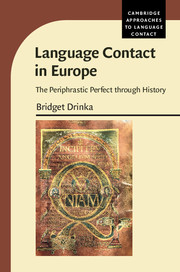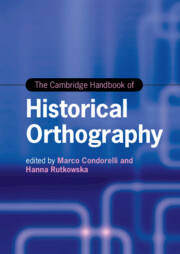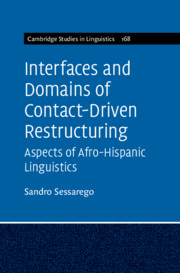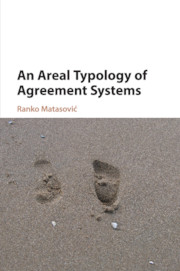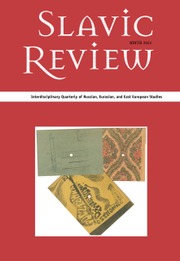Language Contact in Europe
The Periphrastic Perfect through History
$51.99 ( ) USD
Part of Cambridge Approaches to Language Contact
- Author: Bridget Drinka, University of Texas, San Antonio
- Date Published: March 2017
- availability: This ISBN is for an eBook version which is distributed on our behalf by a third party.
- format: Adobe eBook Reader
- isbn: 9781316842324
Find out more about Cambridge eBooks
$
51.99 USD
( )
Adobe eBook Reader
Other available formats:
Paperback, Hardback
Looking for an examination copy?
This title is not currently available for examination. However, if you are interested in the title for your course we can consider offering an examination copy. To register your interest please contact [email protected] providing details of the course you are teaching.
-
This comprehensive new work provides extensive evidence for the essential role of language contact as a primary trigger for change. Unique in breadth, it traces the spread of the periphrastic perfect across Europe over the last 2,500 years, illustrating at each stage the micro-responses of speakers and communities to macro-historical pressures. Among the key forces claimed to be responsible for normative innovations in both eastern and western Europe is 'roofing' - the superstratal influence of Greek and Latin on languages under the influence of Greek Orthodoxy and Roman Catholicism respectively. The author provides a new interpretation of the notion of 'sprachbund', presenting the model of a three-dimensional stratified convergence zone, and applies this model to her analysis of the have and be perfects within the Charlemagne sprachbund. The book also tackles broader theoretical issues, for example, demonstrating that the perfect tense should not be viewed as a universal category.
Read more- Provides a comprehensive examination of the development of a single feature across space and time
- Employs an empirical approach, utilizing textual analysis, mapping, and statistical evaluation
- Questions key claims made about the perfect construction, such as its universality and its unidirectionality towards past tense
Customer reviews
Not yet reviewed
Be the first to review
Review was not posted due to profanity
×Product details
- Date Published: March 2017
- format: Adobe eBook Reader
- isbn: 9781316842324
- contains: 15 b/w illus. 35 maps
- availability: This ISBN is for an eBook version which is distributed on our behalf by a third party.
Table of Contents
1. Language contact in Europe: the periphrastic perfect through history
2. Languages in contact, areal linguistics and the perfect
3. The perfect as a category
4. Sources of the perfect in Indo-European
5. The periphrastic perfect in Greek
6. The periphrastic perfect in Latin
7. The Charlemagne sprachbund and the periphrastic perfects
8. The core and peripheral features of romance languages
9. The early development of the perfect in the Germanic languages
10. The semantic shift of anterior to preterite
11. The Balkan perfects: grammaticalization and contact
12. Byzantium, orthodoxy, and old church Slavonic
13. The l-perfect in North Slavic
14. Updating the notion of sprachbund: new resultatives and the circum-Baltic 'stratified convergence zone'
15. The have resultative in Slavic and Baltic
16. Conclusions.-
Student Resources
Find resources associated with this title
Type Name Unlocked * Format Size Showing of
This title is supported by one or more locked resources. Access to locked resources is granted exclusively by Cambridge University Press to instructors whose faculty status has been verified. To gain access to locked resources, instructors should sign in to or register for a Cambridge user account.
Please use locked resources responsibly and exercise your professional discretion when choosing how you share these materials with your students. Other instructors may wish to use locked resources for assessment purposes and their usefulness is undermined when the source files (for example, solution manuals or test banks) are shared online or via social networks.
Supplementary resources are subject to copyright. Instructors are permitted to view, print or download these resources for use in their teaching, but may not change them or use them for commercial gain.
If you are having problems accessing these resources please contact [email protected].
Sorry, this resource is locked
Please register or sign in to request access. If you are having problems accessing these resources please email [email protected]
Register Sign in» Proceed
You are now leaving the Cambridge University Press website. Your eBook purchase and download will be completed by our partner www.ebooks.com. Please see the permission section of the www.ebooks.com catalogue page for details of the print & copy limits on our eBooks.
Continue ×Are you sure you want to delete your account?
This cannot be undone.
Thank you for your feedback which will help us improve our service.
If you requested a response, we will make sure to get back to you shortly.
×
